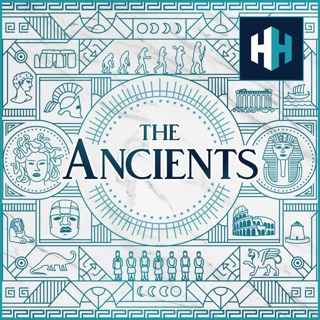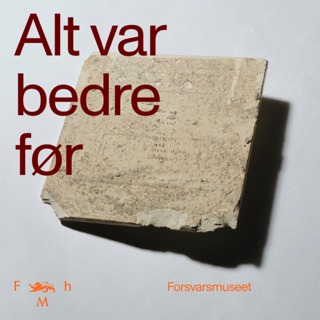
Origins of Biological & Chemical Warfare
The origins of biological and chemical warfare stretch far back; modern technology has not brought about these terrifying weapons. Throughout antiquity we have cases of societies using poisonous gases, incendiary materials and living organisms against their enemies. From snake and scorpion bombs to the use of ancient naphtha grenades. But how did the ancients view these infamous weapons? Did they try to refrain from using them? And if they did use them, why?I was thrilled to be joined by Adrienne Mayor to chat through this extraordinary topic. Adrienne is a folklorist and historian of ancient science at Stanford University. She is the author of numerous books including Greek Fire, Poison Arrows and Scorpion Bombs: Biological and Chemical Warfare in the Ancient World. Hosted on Acast. See acast.com/privacy for more information.
2 Jul 202030min

Fall of the Western Roman Empire
In the late 4th century and early 5th centuries two massive largely-Germanic confederations arrived on Roman borders, having been uprooted from their homelands by the Huns. These were the Goths and the Vandals. Both peoples would become prime enemies of the Roman Empires in the East and West. Both would sack Rome; both played significant roles in the decline of the Western Roman Empire, inflicting terrible defeats and seizing some of the most lucrative territory in the Western Mediterranean. To talk through this ‘barbarian’ impact on the Fall of the Western Roman Empire, I’m chatting with Peter Heather, Professor of Medieval History at King’s College London and the author of ‘The Fall of the Roman Empire: A New History of Rome and the Barbarians’. Hosted on Acast. See acast.com/privacy for more information.
26 Jun 20201h 2min

Plague of Athens
Plague in the ancient world was nothing unusual. Bouts of illness were common occurrences, but we do have accounts of some exceptional outbreaks: epidemics that brought powerful empires and city-states to their knees. One of the most infamous occurred in 430 BC: the Plague of Athens. Recently I was fortunate enough to interview Alastair Blanshard, a Professor of Classics and Ancient History at the University of Queensland, about this devastating episode in Athenian history. Hosted on Acast. See acast.com/privacy for more information.
24 Jun 202035min





















